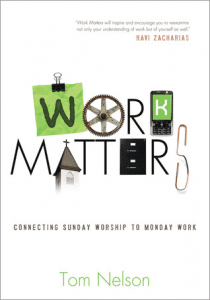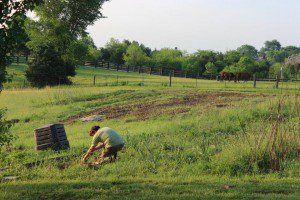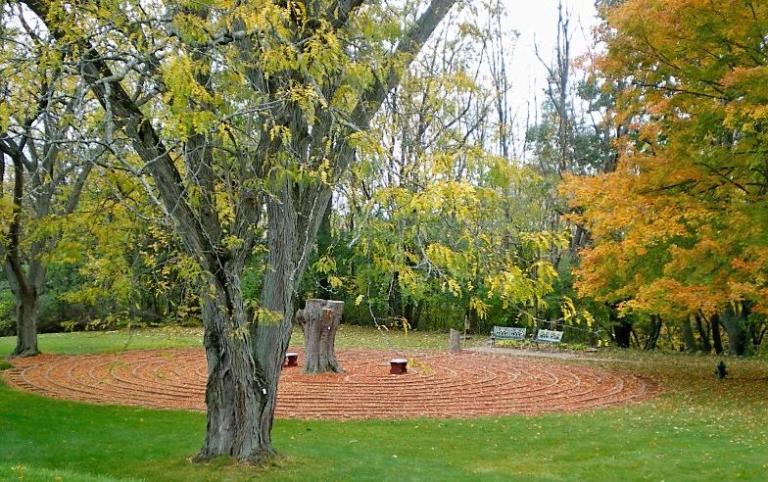A highlight of the recent Redeeming Work Twin Cities conference was Tom Nelson, pastor of metro Kansas City’s Christ Community Church and author of Work Matters: Connecting Sunday Worship to Monday Work.
Tom opened by telling a story on himself. At a posh benefit dinner, Tom had successfully avoided “outing himself” as a pastor until . . . a redoubtable society woman greeted him loudly across a table of formally dressed movers and shakers: “Pastor Tom!” she said. And Tom said “Yes?” “I hear you’ve written a book about work.” Pause. “Why on earth would a pastor do that?”
The unspoken assumption of this outspoken woman was: What would a pastor know about work? Pastors don’t live in the real world! The worlds of Sunday and Monday are planets apart.
And indeed, for many years, Tom confessed, he had committed “pastoral malpractice” (his words) by not making the connection between those worlds, biblically, theologically, for his congregation. One Sunday he mounted to his pulpit to admit just this, and to vow: “Our language, our practices, are going to change.”
Since that day, many years ago, Christ Community has learned much as a congregation.
Tom quoted Wendell Berry: “The significance and quality of the work we do is ultimately determined by the story in which we find ourselves.” All of us, whatever our vocation, have an animating story that seeks coherence, connectivity, a defining reality – that animates our Monday life. The question for us is: What is that story telling us? Is it closing the Sunday-Monday gap?
To help his church re-narrate their work, Tom talked about three primary areas they have focused on as local church parish to help us narrow that gap. First, they try to teach a robust theology that informs our everyday life and work.
“I went to a great seminary,” Tom said; “I grew up in a Christian home, but missed those ‘bookends of the story’ that Andy Crouch talked about today. What that meant to me as pastor, a Jesus-follower, was that the richness of redemption in the middle was like watching black-and-white television rather than HD. I failed to see the coherence from Gen 1 to the end of Revelation. I missed this deeply, and it profoundly impoverished my life, my pastoral vocation, and my congregation. So out of my own stumbling, failure, I was surprised by the surprising work of God in my life. A few years earlier I would have asked that same question posed to me by the lady at the dinner: ‘Why would a pastor write a book about work?’
So at Christ Community the focus is this: “From creation to consummation, vocation is integral to the story, not incidental. John Stott, in the intro to his Christian Mission in Modern World, says ‘We must begin with vocation.’”
So, Tom took us to Genesis 1, an introduction of God revealing himself in all his immensity of attributes – but also introducing himself as a working God. We therefore begin as Christians with the world “integral” – “wholeness.” We have an Integral God, Father-Son-Spirit, who is an integral worker. So we hear the Hebrew word for Create. That sets the tone. Only God is the subject of that word in Scripture.
Tom continued: As God creates, next we hear the blessing – initially fruitfulness, multiplying, but first the uniqueness of human kind, 26 – 28 “Let us make humans in our image.” Workers, just like God. Then comes the job description, v 27: “be productive and procreative”—both implied by the single Hebrew word parah.
Now Genesis 2 takes on the question of how humans fit in the created order, how they are integral—and we notice the incompleteness of creation without certain additions. Not: “Ooops, I made a mistake,” but incompleteness. In 2:5 something is missing. There is no bush, no rain, no humans. All are integral to the creation design. “There is no man to work the ground,” and so God creates humanity; humanity fits and completes the created order.
Tom continued the story. God plants the garden and puts the humans in it. In 2:15, he sets the trajectory of humankind in the created order. What is their job? To work and keep it – avodah and shamarah – before sin and death in Genesis chapter 3 dis-integrate the creation of 1 and 2.
Tom argued that humans have two primary places we fit as image bearers: to cultivate, avodah, and to protect, shamarah. Avodah is used in the Old Testament in three seamless ways: 1) cultivating ground, farming, 2) priestly service in tabernacle, 3) craftsmanship.
What does all this mean for us? Tom said: In Genesis 2:15, we  have the Biblical definition of work. If we miss it, the story gets distorted, our story. We were created with work in mind, by a working God. Work is fundamentally contribution, not remuneration or compensation. If we miss that definition, then we are committing malpractice. The implications are profound. Remember, Tom added, that Hilary Rosen said in the presidential election about Ann Romney: “She’s never worked a day in her life.” Her story of work is simply wrong – work is not just what you get paid for!
have the Biblical definition of work. If we miss it, the story gets distorted, our story. We were created with work in mind, by a working God. Work is fundamentally contribution, not remuneration or compensation. If we miss that definition, then we are committing malpractice. The implications are profound. Remember, Tom added, that Hilary Rosen said in the presidential election about Ann Romney: “She’s never worked a day in her life.” Her story of work is simply wrong – work is not just what you get paid for!
So for an underemployed person or retiree or stay at home spouse – how does God’s vocational story speak to them? We must understand that work is first and foremost contribution. Says Dorothy Sayers: “Work is not primarily a thing one does to live, but the thing one lives to do.”
But the story, of course, does not stop in Genesis 2. How does work play out in a fallen world? And what else has Christ Community done to bring Monday back into Sunday besides remind people about the story of creation? Tom had more to say on that….including the contribution to our redemption made by all those years Jesus spent doing blue-collar work. Stay tuned.












